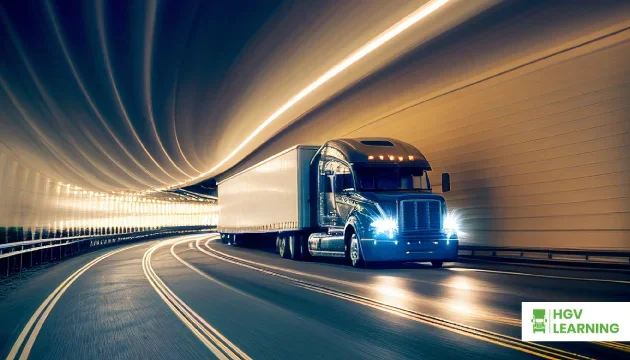Related Articles

23/02/2026
C1 Licence Training Cost: A Complete UK Breakdown


Are you a skilled HGV driver looking for international job prospects? The world of heavy goods vehicle transportation offers numerous exciting opportunities beyond UK borders. However, before venturing into international HGV jobs, it’s essential to understand whether you require a UK licence. In this article, we’ll delve into the requirements and shed light on the possibilities awaiting skilled HGV drivers worldwide.
International HGV (Heavy Goods Vehicle) jobs refer to employment opportunities that involve the transportation of goods across international borders using heavy goods vehicles. These jobs require drivers to operate large commercial vehicles, such as trucks or lorries, to transport cargo between different countries or regions.
International HGV jobs involve transporting a wide range of goods, including raw materials, manufactured products, perishable goods, hazardous materials, and more. Drivers in these roles play a vital role in facilitating global trade and supply chain operations by ensuring the efficient movement of goods across borders.
In international HGV jobs, drivers may be required to travel long distances, sometimes spending extended periods away from home. They navigate through various countries, adhering to different road regulations, customs procedures, and safety standards. These drivers often need to have a good understanding of logistics, route planning, and time management to ensure timely deliveries and efficient transportation.
International HGV jobs can encompass different types of haulage, such as long hauls, European haulage, international delivery, or ADR haulage (transportation of hazardous materials). The specific nature of the job can vary depending on the employer, the type of goods being transported, and the regions involved.
In this type of HGV job, drivers transport goods across long distances, usually crossing borders and delivering goods to different countries. These jobs involve extensive travel and can require drivers to be away from home for extended periods. International long-haul drivers often have to navigate through various customs and border procedures and may need to comply with different regulations and road conditions in each country they pass through.
European haulage jobs involve transporting goods within Europe. Drivers in this role may work for international logistics companies or transport goods on behalf of manufacturers or distributors. They navigate through different countries within the European Union (EU) and beyond, following specific routes and adhering to varying road regulations and toll systems. European haulage drivers need to be familiar with different languages, currencies, and customs procedures across the countries they operate in.
International delivery drivers transport goods to specific locations or businesses across international borders. These jobs may involve delivering products directly to customers or transporting shipments between distribution centers or warehouses. International delivery drivers often work for courier or delivery companies and must have a good understanding of logistics, route planning, and time management. They may need to handle paperwork, such as customs declarations and delivery confirmations, and may interact with customers during the delivery process.
ADR (Accord Dangereux Routier) refers to the transportation of hazardous materials by road. These HGV jobs involve transporting goods that are classified as dangerous or potentially harmful.
Drivers in this role must comply with strict safety regulations. They must also carry the appropriate licenses and certifications, and be trained in handling hazardous materials. ADR HGV drivers are responsible for ensuring the safe and secure transportation of these goods. You will also be required to follow specific protocols for packaging, labelling, and handling dangerous substances.
Event logistics HGV jobs involve providing transportation services for events such as concerts, trade shows, and sports competitions. Drivers in this role transport equipment, staging materials, and other event-related goods to the event venue. They may work closely with event organizers, ensuring timely delivery and coordination with other suppliers and vendors. Event logistics drivers need to be flexible, adaptable, and have excellent organizational and communication skills.
The requirement for a UK licence in international HGV jobs largely depends on the country or region you intend to work in. While some countries accept UK licences without additional prerequisites, others may have specific licensing requirements or a need for additional certifications.
If you plan to work in an EU or EEA country, possessing a valid UK driving licence is generally sufficient. However, it is important to note that after the UK’s departure from the EU, there may be additional administrative procedures or documentation needed. This may include obtaining an International Driving Permit (IDP). You may also have to exchange your UK licence for a local one in some cases.
Researching the specific requirements of the country you’re interested in is crucial to ensure compliance.
Outside of the EU and EEA, the requirements for HGV drivers can vary significantly. Some countries may recognise UK licences. Others may require additional documentation, such as work permits, local licences, or specialised certifications. Researching the specific regulations and contacting the relevant authorities or potential employers in your target country is essential to determine the necessary credentials.
Despite potential licensing requirements, skilled HGV drivers can find lucrative opportunities worldwide. As globalisation continues to drive international trade and logistics, demand for experienced drivers remains high. By demonstrating your proficiency and adaptability, you can access a range of rewarding career prospects, including:

23/02/2026

Complete the form below and we’ll contact you asap.

